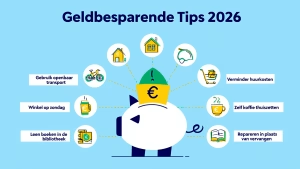The Soul of Europe and the Influence of Oil: A Critical Look

By francis on Mar 14, 2008 politics
Introduction: Fire, Pompidou and the Oil Crisis
The 1970s were a tumultuous period for Europe, marked by economic and political upheavals. One of the most dramatic events was the 1973 oil crisis, which was caused by an oil embargo imposed by the members of the Organization of Arab Petroleum Exporting Countries (OAPEC). The embargo led to a dramatic increase in oil prices and destabilized European economies, which were heavily dependent on foreign oil.
In the midst of this crisis, rumors of secret deals between European leaders and the Islamic world were circulating. Names such as Willy Brandt, then Chancellor of West Germany, and Georges Pompidou, President of France, were mentioned in rumors claiming that they had sold the “soul of Europe” in exchange for a steady supply of oil. These rumors, however, sometimes find their way into public discourse and the media.
The origins of these conspiracy theories often lie in a mixture of fear, misunderstanding and political unrest. Dependence on foreign oil made Europe vulnerable and fueled concerns about economic stability and national security. It is in such a context that such theories can emerge and flourish. Although these stories are usually dismissed as nonsense by historians and analysts, agreements were made that opened the doors to mass immigration. They offer a glimpse into the psyche of a society struggling with a complex set of challenges.
The Transition to Aquarius: A New Astrological Era
In the astrological world, the transition into the Aquarian Age marks a significant shift in cosmic energies and global consciousness. This era, known as the Age of Aquarius, is believed to usher in a time of change and renewal. Aquarian times are often associated with ideas such as individualism, technological advancement, and humanitarianism. For many, this era symbolizes a shift from the Pius Age, characterized by structure and hierarchy, to a more egalitarian and innovative world order.
The concept of the Age of Aquarius is rooted in astrology and is often associated with collective transformation. Astrologers claim that this cosmic period can have an influence on the collective psyche, spurred on by the energies of Aquarius that encourage change and new ways of thinking. These influences could result in a general societal expectation of progressive reform, social justice and technological advancement. People believe that this age offers the potential for great upheaval and freedom from traditional ties and constraints.
Despite the optimistic expectations surrounding the transition to the Age of Aquarius, there is a striking contrast with the current socio-economic reality. The world continues to face numerous challenges, including inequalities, economic crises and ecological problems. The call for change, inspired by astrological growth, often seems to clash with the practicalities and resistance within existing structures. Yet the ideals of the Age of Aquarius continue to inspire; a hopeful vision of a world where cooperation, innovation and shared freedom are dominant.
Whether one believes in astrology or not, the themes of the Age of Aquarius remain relevant in the context of an ever-changing world. It provides a framework for reflecting on how humanity can harmonize its aspirations and potentials to create a more just and sustainable future.
The Final Stages of ‘The Beast from the Earth’
‘The Beast from the Earth’ is a symbolic representation that originates from apocalyptic visions and mythologies. In light of contemporary challenges, this metaphor can be seen as a powerful analogy for the current environmental crisis and the depletion of natural resources. In the interconnection of ecology and economy, oil plays a central role as a symbol of destruction and decadence. The use of oil, as one of the most valuable and polluting resources, represents the insatiable desire of man to pursue endless growth, often at the expense of the planet.
Environmental and climate policies of recent decades reflect a growing awareness of these destructive tendencies. Yet dependence on fossil fuels remains a persistent reality. The process of oil extraction itself destroys ecosystems, pollutes water sources, and exposes communities to a range of health risks. These activities are often justified by economic considerations, but the underlying ecological damage is significant and often irreversible.
The final stages of ‘The Beast from the Earth’ can therefore be interpreted as the critical moment in which humanity is confronted with the consequences of its unbridled exploitation of natural resources. Global warming, rising sea levels and the increasing frequency of extreme weather events are direct consequences of decades of dependence on fossil fuels. As a result, the need for a transition to sustainable energy sources is becoming increasingly urgent.
By recognizing that our actions and policies directly contribute to the depletion of the Earth, we can take a step towards recovery and sustainability. In this, it is essential that both individuals and governments take responsibility to abandon the destructive path of depletion and pollution, and choose a path that guarantees a habitable planet for future generations.
The Looming Presence of ‘The Beast from the Sea’
‘The Beast from the Sea’ is a metaphor that represents the threats that Europe faces from external sources. These threats are multifaceted and range from geopolitical tensions to climate change resulting in rising sea levels. One of the main concerns is the increasing migration due to conflicts and economic inequalities. This phenomenon not only has direct consequences for the receiving countries, but also creates tensions within the European Union as member states adopt different approaches and positions.
In addition, sea level rise poses significant risks. Low-lying areas in Europe, such as the Netherlands and parts of Belgium, are particularly vulnerable. The increasing frequency and intensity of natural disasters, such as floods, affect both physical infrastructure and economic stability. This requires not only immediate measures, such as strengthening dikes and adapting urban planning, but also long-term strategies to mitigate the effects of climate change.
Geopolitical tensions add another layer of complexity to this situation. Conflicts over resources such as oil can lead to disruptions in global trade and economic sanctions, which could trigger a chain reaction within European markets. Recent events have also shown that dependence on oil imports exposes Europe to the power positions of external suppliers, increasing the urgency to invest in renewables and promote independence.
The impact of these threats on the stability of Europe and the rest of the world cannot be underestimated. An integrated approach is essential, taking both preventive and reactive measures. European cooperation on security, climate policy and migration can contribute to a more resilient and stable continent. It is crucial that policymakers anticipate these threats and respond adequately to ensure the stability and security of Europe.
Why Should We Use Up Our Oil Supply?
The need to rethink our current consumption of oil is becoming increasingly urgent given the long-term consequences of continued dependence on non-renewable resources. Oil supplies are finite, and their depletion has troubling environmental, economic, and social consequences. By continuing to rely on fossil fuels, we contribute to climate change, air pollution, and ecological devastation, which pose a threat to future generations.
A key step in addressing these challenges is the transition to sustainable energy sources such as wind, solar and hydropower. These sources are not only inexhaustible, but also less harmful to the environment. The urgency for this transition is supported by numerous policy proposals and scientific innovations. For example, the EU has committed to the Green Deal, a package of policies aimed at making the European economy sustainable. The goal is to have no net greenhouse gas emissions by 2050.
In addition to policy initiatives, scientific innovations play a crucial role in the transition to sustainability. Technological advances in the storage and distribution of renewable energy are making it increasingly feasible to move away from oil. Innovations such as battery storage systems and smart grids can make sustainable energy more reliable and accessible.
In addition, there are numerous social initiatives that strive for a more sustainable future by promoting awareness and behavioural change. Citizens are committed to saving energy, investing in green technologies and supporting companies that apply sustainable practices. These initiatives should be encouraged and supported by governments and communities to stimulate a collective movement towards a more sustainable future.
Rethinking our use of oil is necessary for both the well-being of the planet and future generations. By investing in sustainable energy sources, policy innovations and community initiatives, we can pave the way for a more resilient and greener society.
In Search of a New Heaven and Earth: The Future of Human Existence
When we think about the future of humanity, it becomes clear that our current resources are not unlimited. With the continued depletion of fossil fuels and increasing pressure on natural resources, we need to explore what lies ahead. The idea of space colonization is a much-discussed possibility. However, this option comes with a range of ethical, economic, and technological challenges that should not be overlooked.
The concept of the “last spaceship” serves as a powerful metaphor for humanity’s groundbreaking ambitions. It symbolizes the search for sustainable alternatives to ensure the survival of our species. However, before such an undertaking can become a reality, we must thoroughly evaluate and prepare for various scenarios. For example, technological progress must make significant strides in areas such as space travel, life support systems, and the colonization of other planets.
In addition, there are numerous ethical questions to consider. How do we decide which individuals will be part of such daring undertakings? What are the rights of those sent to new worlds, and how do we ensure justice and equality in a completely new context? The economic implications also need to be carefully studied. The costs of space colonization are astronomical, and how we finance these efforts without reinforcing the inequalities already present on Earth deserves deep consideration.
Finally, the concept of a sustainable future offers us a path of hope, but also of accountability. Sustainable energy, the conservation of natural resources, and technological innovation must go hand in hand. Governments, science, and businesses must work together to create a resilient and viable future, both on Earth and beyond. It is crucial that we as a society remember that the search for new possibilities goes hand in hand with the need to protect and nurture our current planet.
The original text is a long way from the AI version.
What would be the point of Brand and Pompidou having pledged the soul of Europe to Islam in order to guarantee a constant flow of oil? Nonsense, but when I look around me, well. Is it time for Aquarius to make its entrance? The time of ‘the beast from the earth’ seems to be on its last legs. The ‘beast from the sea’ is knocking at the door. Why should we first use up the entire oil supply? Then we would be on the island of Earth where everything is poor, with no way out! That is what happened on Easter Island where the population had cut away and eaten everything. In the end they could no longer get away and everyone died of misery! That link between ideology and energy is not even that strange in that respect! It gives us a platform to continue with what we are doing. As a Christian, for example, you can hold on to that last straw. Maybe I will be allowed to go on that last spaceship with the last drop of oil. Hop to the new heaven and the new earth somewhere in a distant constellation! It is the foundation of our unbridled consumer society, to believe that. The ideology of the Americans and of us Europeans. In the endless space lies the future… ha ha… Sure! Keep dreaming!
The Wiki page on the oil crisis sheds some more light on the concessions to the Arabs to adopt a new political attitude, from the West, towards Israel. In that respect, the so-called conspiracy theory is not so far-fetched. It partly explains the relatively large tolerance towards Islam in Europe and certainly now, the relatively large aversion towards Israel. The pressure of an oil embargo has had a great influence on world politics, in recent decades and up to the present. Now that oil is becoming scarce, new alternatives are extremely welcome.





